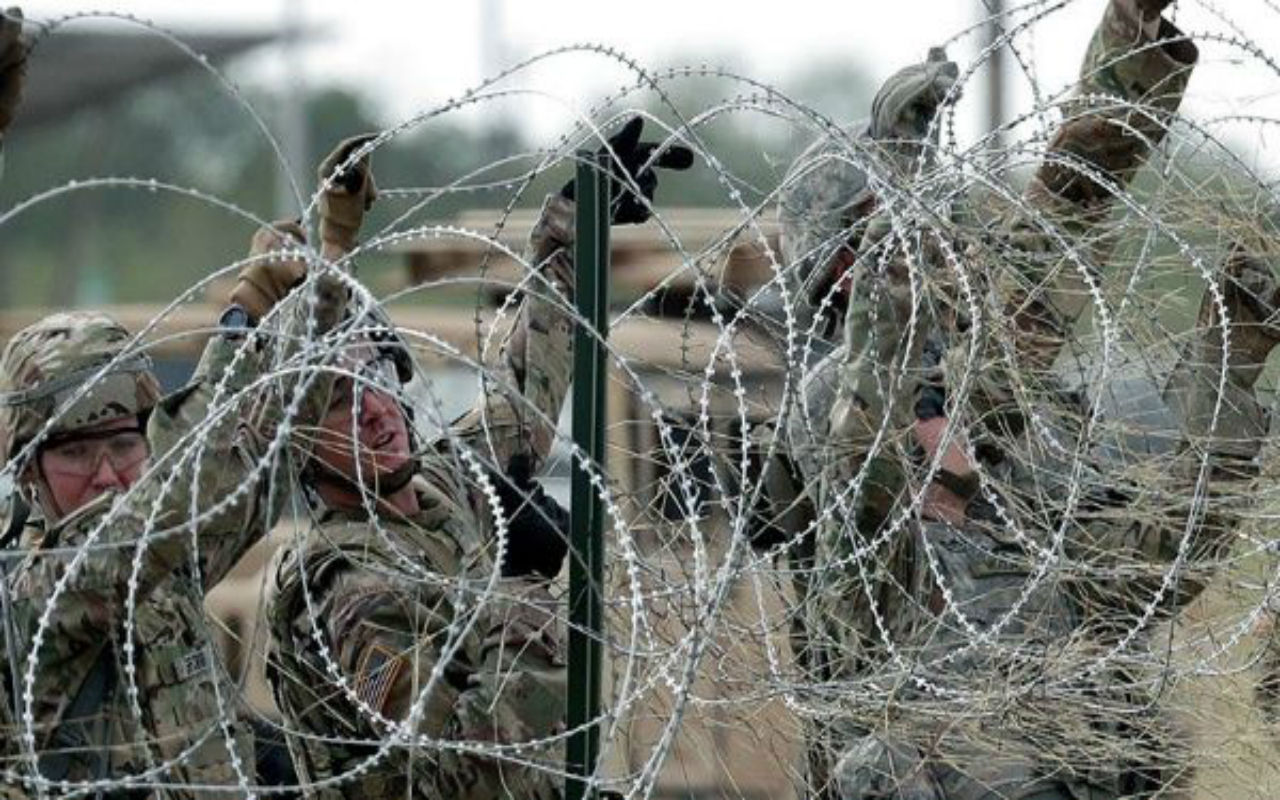by the El Reportero wire services
Despite the fact that the United States and Guatemala signed an agreement to stop migration, President Donald Trump requested the invasion of US military troops.
The Minister of Defense of Guatemala, Luis Miguel Ralda, indicated that the US military troops are already working with the department of Huehuetenango to stop the unauthorized migration that leaves the country.
Ralda, indicated that US military troops are already working in Guatemala to stop migration pic.twitter.com/CToNOlomnQ – Diario La Hora (@lahoragt) June 3, 2019
Last week the United States and Guatemala signed a cooperation agreement to stop human trafficking and criminal networks, the country committed to share information and improve border security.
Despite this, The New Yorker published a letter in which Donald Trump requested the intervention of US military troops in Guatemala, an action that President Jimmy Morales would have accepted.
According to the Washington Post, officials from the Department of Homeland Security would help the Guatemalan national police and immigration authorities in operations to intercept human trafficking.
“I am proud to sign this agreement with the Minister Enrique Antonio Degenhart. Through our ongoing collaboration and partnership, the United States and Guatemala are formalizing a series of initiatives to improve the lives and safety of our respective citizens through the fight against human trafficking and the smuggling of illegal assets, helping to limit the factors that encourage the dangerous irregular migration to the United States, perpetuating the crisis that exists on the border, “said Acting Secretary McAleenan. (Source: Migrant Connection).
The IACHR asks El Salvador to suspend the Reconciliation Law
The president of the Inter-American Court of Human Rights (IACHR), Eduardo Ferrer MacGregor Poisot, issued on May 28 a resolution ordering the Salvadoran State to stop the process of the “Special Law of Transitional and Restorative Justice for National Reconciliation”.
Through a communiqué, the Inter-American Court ordered that El Salvador suspend the legislative process of the bill and asked for additional information about how this rule would affect the processes of several massacres that occurred in 1981, in which members of the Armed Forces killed more than 900 civilians.
The resolution requires the State to submit a report no later than June 14, 2019. The international body warns that “if approved in the terms in which the project is currently proposed, it could be a law incompatible with the articles 8 and 25 of the American Convention.”
The bill must be reformed since it contains inadmissible rules that could deprive thousands of victims of atrocious crimes of genuine justice.
This establishes alternative penalties for defendants who confess crimes and tell the truth about what happened:
• Would fully suspend the sentences imposed on those sentenced to 10 years in prison or less.
• Those sentenced to more than 10 years, even if they are massive and aberrant crimes, must comply with sanctions of “public utility work” for a maximum of 10 years.
The legislative project of the so-called “Special Law of Transitional and Restorative Justice for National Reconciliation” would benefit the military and guerrillas involved in serious violations of human rights and international humanitarian law, which occurred during the 12 years of internal armed conflict in the country. It ended in 1992. The massacre occurred in the El Mozote farmhouse and its surroundings, in the eastern province of Morazán, El Salvador, between December 10 and 13, 1981.
Those responsible for these deaths and forced disappearances, whether military or guerrilla, have never been tried in El Salvador, since they were protected by a general amnesty promulgated in 1993 by the then President Alfredo Cristiani, however, the Constitutional Chamber of the Supreme Court of Justice left it without effect in 2016.



